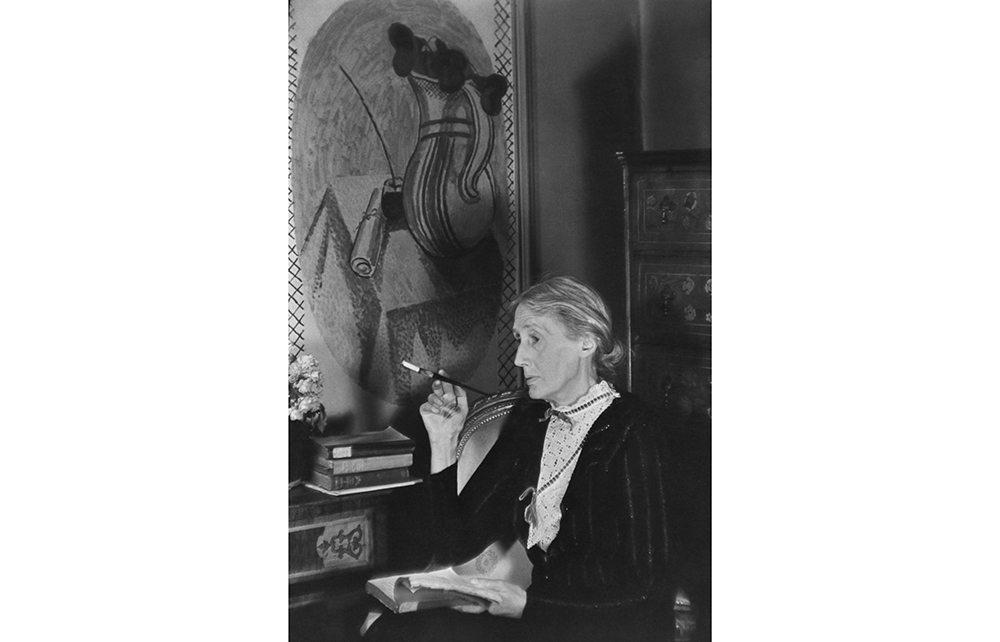In November 1935, Virginia Woolf saw a production of Romeo and Juliet. She was not overly impressed. ‘Acting it,’ she wrote, ‘they spoil the poetry.’ Harsh words, you might think, for a cast that included John Gielgud, Laurence Olivier, Peggy Ashcroft, Edith Evans and Alec Guinness. But Shakespeare on the stage was something of a bête noire for the Bloomsbury group. ‘We, of course, only read Shakespeare,’ Clive Bell later said. The Shakespeare that mattered was the one on the page.
Shakespeare on stage was a bête noire for the Bloomsberries. ‘We, of course, only read Shakespeare,’ said Clive Bell
Who was that ‘we’, though? Marjorie Garber’s understanding of the group’s membership encompasses Woolf and her siblings, numerous alumni of the Cambridge society known as the Apostles, and their children and friends. The question Garber poses in Shakespeare in Bloomsbury, however, would add one more to the list. To what extent, she asks, might we consider Shakespeare himself a member – an ‘absent-present’, in Woolf’s phrase, in their thoughts and conversation?
Woolf’s introduction to Shakespeare came largely through another absent presence in her life, her older brother Thoby, himself an Apostle, who died in 1906. His loss haunted her, and she considered dedicating Jacob’s Room to him in 1922. But his passion for Shakespeare left its mark: ‘He would sweep down upon me, with his assertion that everything was in Shakespeare. He was ruthless; exasperating me; downing me; overwhelming me.’
There is a similarly engulfing physicality in Woolf’s reading of Shakespeare. It surges off the page:
I was reading Othello last night, & was impressed by the volley & volume & tumble of his words. I never yet knew how amazing his stretch & speed & word coining power is… things I could not in my wildest tumult and utmost press of mind imagine.
Late in life she wrote of how ‘theatre must be replaced by the theatre of the brain… the audience… by the reader’. It sounds a cold, passive formulation, but for Woolf it was anything but. ‘I read Shakespeare… when my mind is agape & red & hot,’ she wrote.
Garber’s account illuminates the aesthetic premium Woolf placed on language, and the quality of attention – both Garber’s and Woolf’s – is remarkable. But there is something else, too. Woolf called Shakespeare ‘Shre’ in her diaries, a private nickname reserved for her own thoughts on him. When she noted the thoughts of others, she typically reverted to ‘Shakespeare’, as if her particular intimacy with him must remain inviolate.
No other member of Bloomsbury approached that intensity. Some – Lytton Strachey and Desmond MacCarthy, for example – wrote about him. For George Rylands, meanwhile, Shakespeare was a career. A Cambridge don, he also – ironically, perhaps, for Bloomsbury – directed countless productions of Shakespeare and taught, among others, Ian McKellen, Peter Hall and Trevor Nunn.
Woolf aside, though, the primary sense is of Shakespeare as an everyday cultural companion. Presenting his wife, the Russian ballerina Lydia Lopokova, with some plays, Maynard Keynes wrote: ‘I send you four little Shakespeares which you can take into the bathroom or carry in your bag or on the bus.’ Leslie Stephens, Woolf’s father, felt similarly 40 years earlier: ‘We can put him in our pockets and treat him as familiarly as a college chum.’
Which begs the question: wasn’t familiarity with Shakespeare simply part of the baggage of an elite literary education? Baggage here is a metaphor, but it is literally true, too. Vita Sackville-West took the complete works with her when her husband Harold Nicolson received a diplomatic posting to Persia. Leonard Woolf did the same when posted to Ceylon. Garber herself cites the 19th-century economist William Stanley Jevons referencing Sonnet 66 in his private journal.
‘A century of academic scholarship and technological revolution has changed, inevitably and probably irrevocably, how Shakespeare is read,’ Gerber writes in an elegiac coda. People – even the privileged sort of whom Bloomsbury were a part – no longer read Shakespeare to one another by way of an evening’s entertainment. Their kind of community of close readers has vanished. How many of us reread Shakespeare for pleasure and insight? How many outside education read him at all?
Strachey, in the introduction to Rylands’s Words and Poetry published by the Woolfs’ Hogarth Press, quoted Mallarmé: ‘Poetry is not written with ideas; it is written with words.’ Shakespeare in Bloomsbury reflects that bias. It is a powerful embodiment of the process it describes: the deep rewards of rapt attention to great writing. In particular, it offers a brilliant, sustained and even beautiful exegesis of Woolf’s engagement with Shakespeare. But Garber is right: we are a long way adrift now from Woolf’s aesthetics of language and attention – far from the pebbled shore, the pearls and old bones, and further out to sea all the time.






Comments